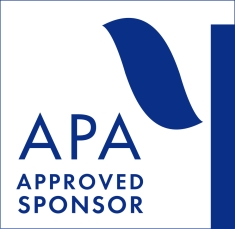Ethical Considerations in the Integration of Choice into the Lives of Individuals with ASD
REGISTRATION IS NOW CLOSED
Description
The ability to make choices is a right most of us take for granted. The opportunity to choose among different activities, such as reading a book or exercising, has traditionally been a right reserved for those who are “neurotypical”. Unfortunately, individuals with autism spectrum disorders (ASDs) often have limited opportunities to make choices in their daily lives. While practitioners have an ethical obligation to encourage choice-making in this population when possible, we are also tasked with addressing important habilitation goals that will increase independence in the future. Complicating matters further is the fact that individuals with ASDs often make poor choices. These populations often make impulsive choices (i.e., selecting smaller-sooner rewards over larger-delayed rewards) or choose to not complete important tasks, even if they lead to beneficial outcomes in the long-term (e.g., brushing their teeth, exercising). These issues become even more pronounced as this population ages and becomes more challenging to intervene with. The purpose of the current presentation is to look at some of the factors that influence choice-making in individuals with ASD and to share some strategies that may afford these individuals with opportunities to make choices while addressing important habilitation goals.
Learning Objectives
Participants will be able to:
- Individuals will be able to describe the ethics of choice for individuals with developmental disabilities.
- Individuals will be able to describe the variables that affect choice-making in ASD populations.
- Individuals will be able to describe how individuals diagnosed with ASD may engage in temporal discounting when given choices.
- Individuals will be able to describe strategies for influencing choice through the use of economic manipulations.
Instructor Bio
Robert H. LaRue, Ph.D., BCBA-D is a Clinical Professor at the Graduate School of Applied and Professional Psychology (GSAPP) at Rutgers University. He earned a dual doctorate in biological and school psychology from Louisiana State University in 2002. He completed his predoctoral internship with the Kennedy Krieger Institute at Johns Hopkins University and a postdoctoral fellowship with the Marcus Institute (now the Marcus Autism Center) at Emory University. He is the currently serves as the Director of Behavioral Services at the Douglass Developmental Disabilities Center (DDDC) and the Rutgers Center for Adult Autism Services (RCAAS), where provides consultative support for students and staff providing intensive behavioral services to students and adults within the Centers. His research interests include the assessment and treatment of maladaptive behavior, improving transitional outcomes for adolescents and adults with ASD, the use of behavioral economics in intervention, and the evaluation of psychotropic medications used with at-risk populations. He has authored articles in peer-reviewed journals, written several book chapters, and presented at national and international conferences.
Dr. LaRue has no conflicts of interest for this program.
Contact Us
For questions, please contact: ce@gsapp.rutgers.edu
Continuing Education Information
Rutgers University- New Brunswick, Graduate School of Applied and Professional Psychology is an approved provider of BCBA continuing education credits. “The Behavior Analyst Certification Board (“BACB”) does not sponsor, approve or endorse Rutgers University- New Brunswick, Graduate School of Applied and Professional Psychology, the materials, information or sessions identified herein.”
Rutgers Graduate School of Applied and Professional Psychology (GSAPP) is approved by the National Association of School Psychologists to offer professional development for school psychologists. Rutgers Graduate School of Applied and Professional Psychology (GSAPP) maintains responsibility for the program.
Rutgers Graduate School of Applied and Professional Psychology (GSAPP) is recognized by the New York State Education Department's State Board for Psychology as an approved provider of continuing education for licensed psychologists #PSY-0123.
LMFT/MFT and LPC/LAC Licensed in New Jersey: Programs approved by the American Psychological Association are acceptable sources of continuing education credits. Please see https://www.njconsumeraffairs.gov/regulations/Chapter-34-Subchapters-10-31-Professional-Counselors.pdf, Section: 13:34-15.4 APPROVAL OF COURSES OR PROGRAMS on page 27. For all other professional licenses and certifications, please reference your issuing state board regulations regarding reciprocity of continuing education credits.

Rutgers Graduate School of Applied & Professional Psychology is approved by the American Psychological Association to sponsor continuing education for psychologists. Rutgers Graduate School of Applied & Professional Psychology maintains responsibility for this program and its content.